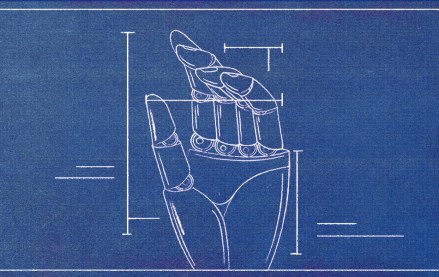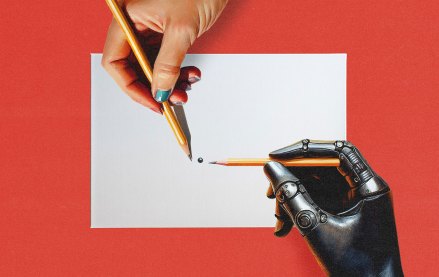Execs differ on what form AI will take in their companies at Cannes — but agree it will have a place

Digiday covers the latest from marketing and media at the annual Cannes Lions International Festival of Creativity. More from the series →
Conversations around generative artificial intelligence have shifted from fear to curiosity, seemingly reaching an inflection point at this year’s Cannes Lions Festival of Creativity.
The industry seems to have embraced that generative artificial intelligence will be a part of the future of advertising. But there’s a wide range in how execs are actually using tools such as ChatGPT, Bard by Google and the new AI-powered Bing, both professionally and personally as their companies dance around a formal stance on the tools.
“It’s a huge topic of conversation. It’s early days for pretty much everybody,” said Chris Rogers, chief business officer at Instacart. “Every brand wants to participate and very few folks have a strong opinion yet on what that’s going to look like.”
Earlier this year, digital players like Instacart and LinkedIn rushed to roll out their own AI-powered tools, pushing to keep up with latest trends dazzling the advertising industry. At the same time, many creatives feared the new technology would eliminate jobs, leveling agency staffs. Here at Cannes, it’s unclear if the ad industry has come up with a collective perspective on the issue or even a regular use case scenario for generative AI.
“AI was being talked about everywhere from panels to the Carlton bar. It’s this year’s ‘buzzword,’ replacing the metaverse and NFTs. But it’s showed up in ways that are more meaningful, and demand more thought, from both agencies and brands,” said Mohan Ramaswamy, co-founder of Work & Co, a digital product agency.
The industry’s current position on AI is best described as a curiosity, according to Tom Pepper, who heads up LinkedIn’s ad business across Europe, Middle East, and Africa, and Latin America. He added that there’s an interest in using the technology as it develops, but also a disconnect in determining what that looks like for advertisers.
“As you build in things like gen AI, we’re figuring out: How do you supercharge some of these fundamental jobs to be done for marketers to really enhance a campaign,” he said. “Those are the conversations we’re having.”
Said curiosity seems to be coming to a head both in the Palais and along the Croisette where conversations about the role the technology will take in advertising was about as obvious of a conversation starter as the weather or how many glasses of rosé had been consumed.
Along the beachfront — premium inventory for advertisers to talk to advertisers — AI was the at the center of several ad campaigns, including MNTN which proclaimed “MNTN needed vowels so we added AI.”
Most C-suite execs punted answering on-the-record how they are using AI. One publisher said they’ve assembled a working group to explore AI and any sort of potential use cases. Another platform exec said they use ChatGPT to draft internal emails (reviewing them before sending them).
Execs at SXM Media (the combined sales org at SiriusXM) were more overt about how they’re using the technology, saying generative AI can be a “scaffolding tool” to build campaigns and support its teams, said Lizzie Widhelm, svp, head of b2b marketing and ad innovation. They’re using generative AI from everything ranging from brainstorming host-read ads to basic copywriting.
“That’s not replacing creativity, that’s finding efficiency for them,” Widhelm said.
Snap, which seems to be embracing the notion that AI will have a place in both its product set and ad industry, had a kiosk available to display its My AI tool — to ask recommendations for nearby restaurants. The company reported that over 150 million people have used the product to send over 10 billion messages to My AI.
At a press conference at the top of the week, Snap explained a bit more of its relationship to the tech, with Rob Wilk, Snap’s President of Americas, lamenting that the company uses its words carefully when talking about AI — saying “enhance,” but not “replace.”
“Advertisers are having an identity crisis because they built their machines on what the world used to be. And now they’re playing catch up,” Wilk said. — Jim Cooper contributed to this report
More in Marketing

Best Buy, Lowe’s chief marketing officers explain why they launched new influencer programs
CMOs launched these new programs in response to the growing importance of influencers in recommending products.

Agencies create specialist units to help marketers’ solve for AI search gatekeepers
Wpromote, Kepler and Jellyfish practices aim to illuminate impact of black box LLMs’ understanding of brands search and social efforts.

What AI startup Cluely gets — and ad tech forgets — about attention
Cluely launched a narrative before it launched a tool. And somehow, it’s working.







